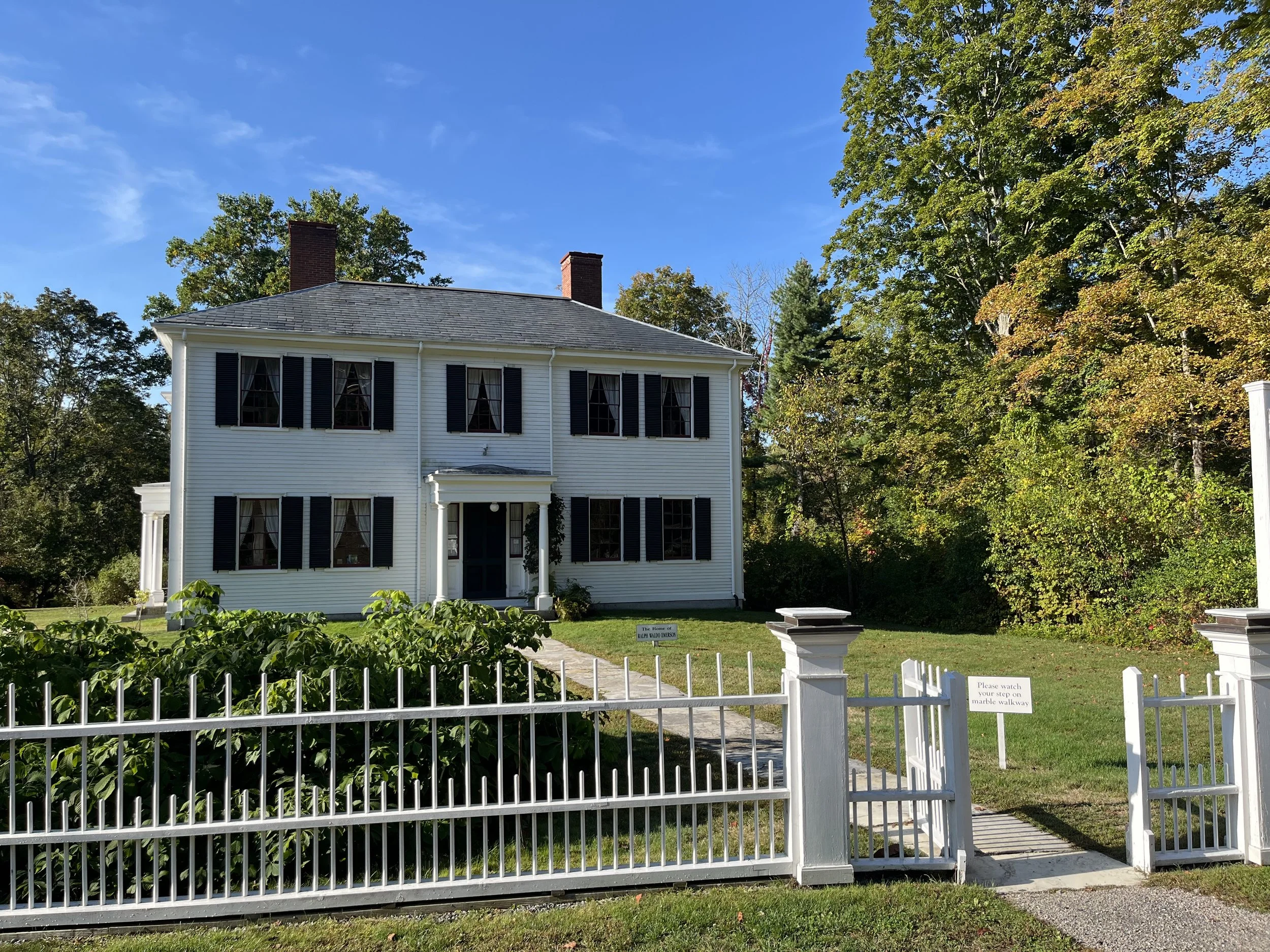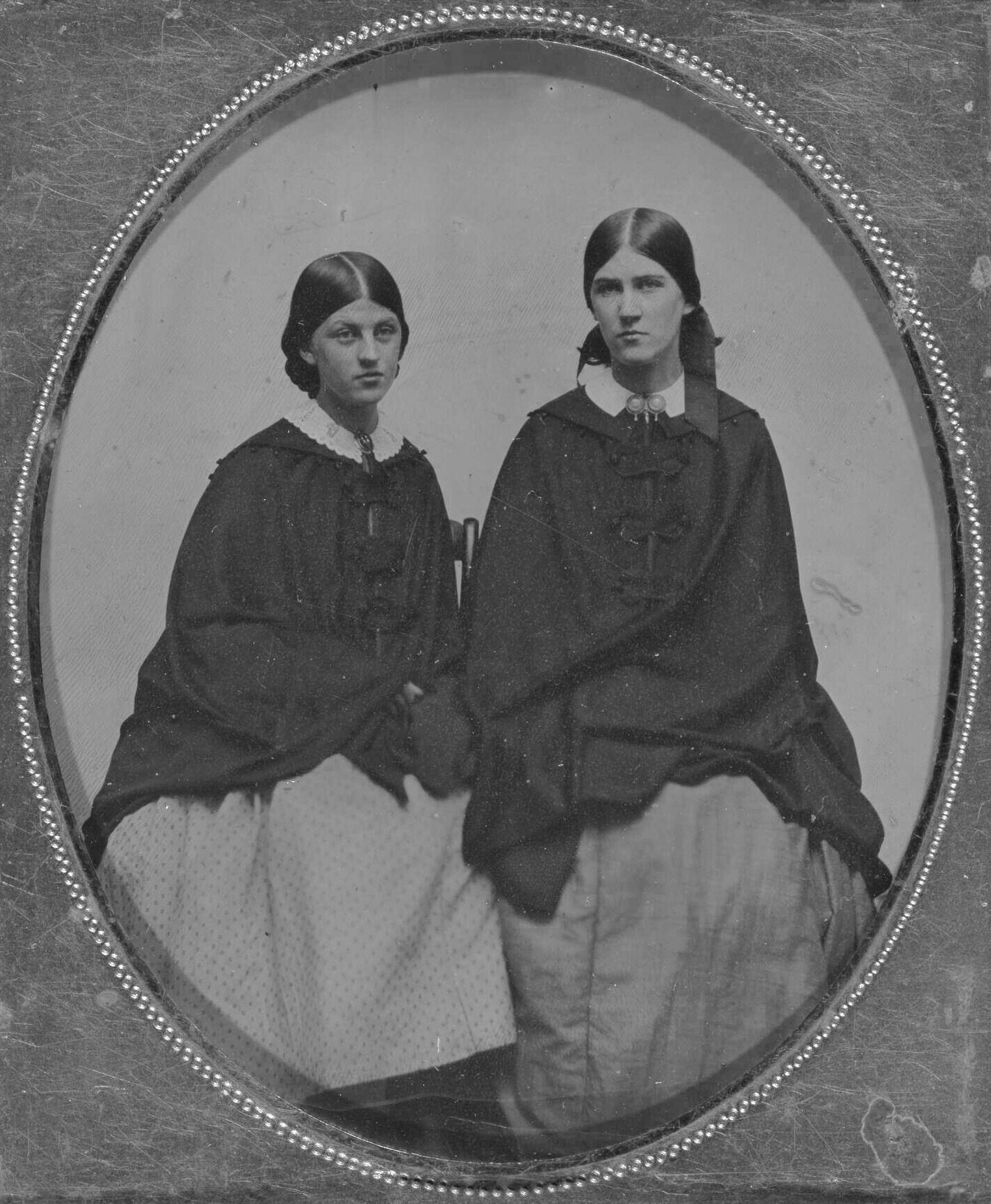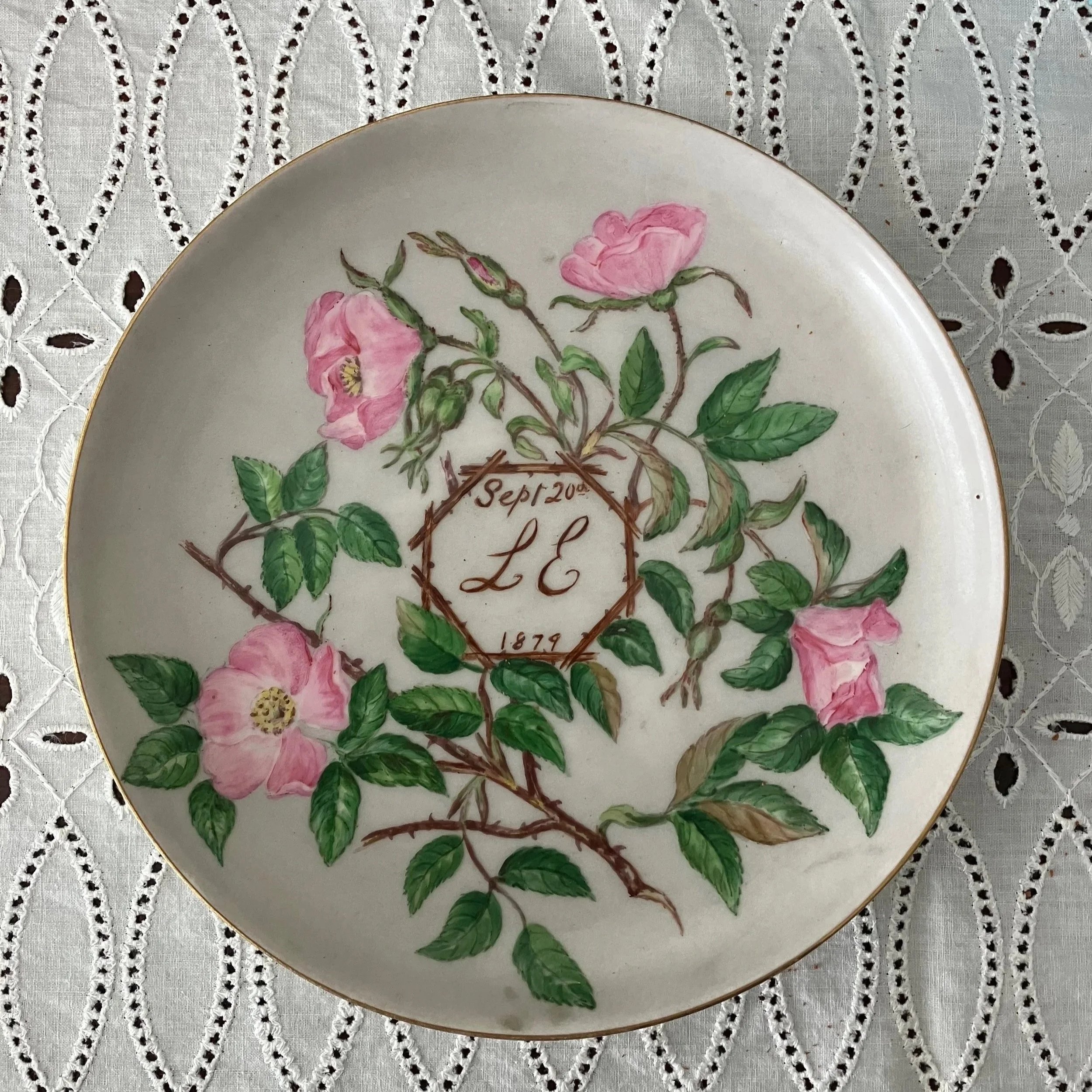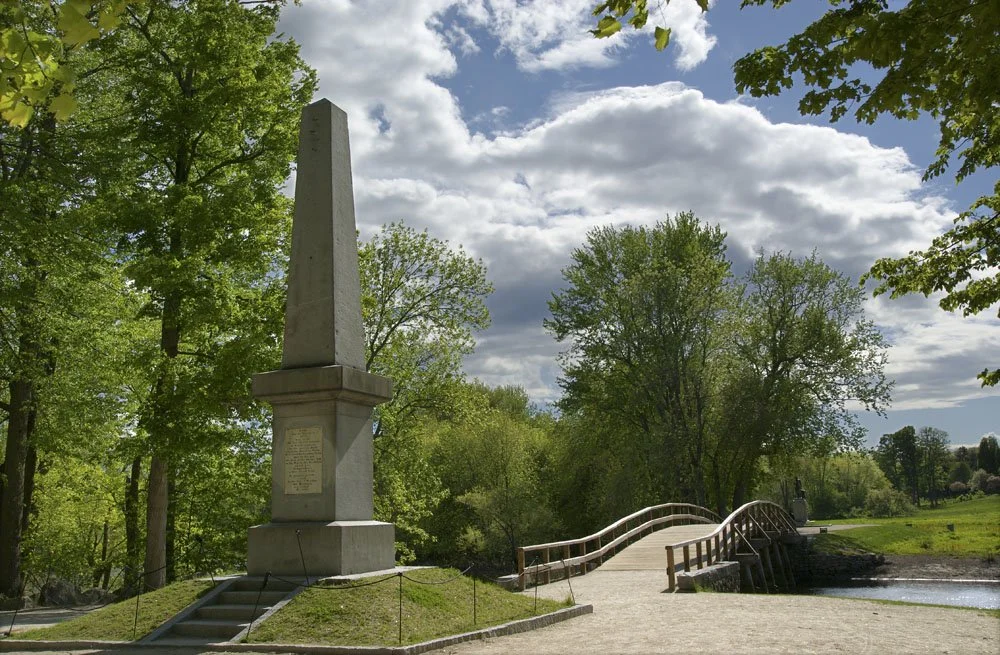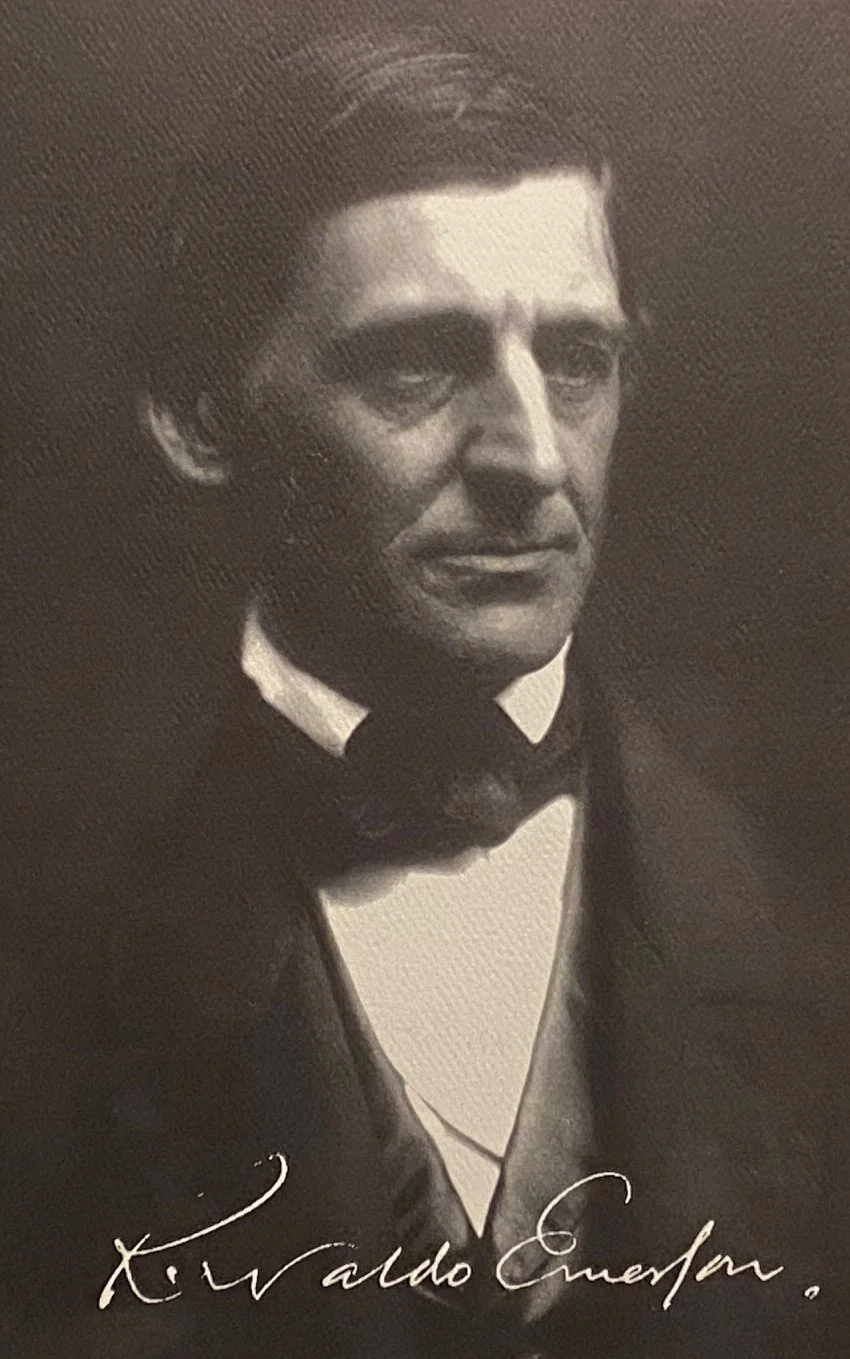
The Lyceum
A gathering place for engaging Emersonian content to educate & entertain.
Thanks for a Great 2025 Season!
Highlights from the 2025 visitors’ season at the Emerson House and a thank you to all who made it such a success.
Edith Emerson Forbes
A biographical profile of Ralph Waldo & Lidian’s third child, Edith Emerson, who married William Hathaway Forbes in 1865. Sociable and well-organized, Edith continued to play a vital role in her parents’ and siblings’ lives after marriage, including overseeing the repairs of the family home after the 1872 fire and working with her father on assembling the poetry anthology Parnassus.
Remarkable Lidian
Celebrating the occasion of Lidian Jackson Emerson’s 223rd birthday and her inclusion in Randall Fuller’s recent group biography, Bright Circle: Five Remarkable Women in the Age of Transcendentalism.
“Born Believing”: Ralph Waldo Emerson’s Birthday
Celebrating the occasion of Ralph Waldo Emerson’s 222nd birthday with a look back at the world into which he was born, and the beliefs that shaped his lasting impact on it.
“Their flag to April’s breeze unfurled”: Emerson and April 19th
The opening battle in America’s war for independence took place at Concord’s Old North Bridge on April 19, 1775—an event later memorialized by Emerson as the “shot heard round the world.” On the 250th anniversary of that fateful day, we look back at the Emerson family’s connections to April 19th: from Ralph Waldo Emerson’s grandparents witnessing those first shots in 1775, to his role in Concord’s centennial celebrations in 1875.
The American Scholar: Emerson’s Call to Awaken American Thought
An examination of the themes and context of Emerson’s momentous 1837 speech, "An Oration, Delivered before the Phi Beta Kappa Society at Cambridge,” later retitled “The American Scholar.” At the time, Emerson was just embarking on his remarkable 40-year career as an essayist, poet and speaker. His mind was racing with new ideas designed to increase individual expression and promote the importance of nature to thought and literature, and the Transcendental Club was founded soon thereafter.
A Momentous Day: April 19, 1775
Remembering the historic Battles of Lexington and Concord that marked the beginning of the American Revolutionary War, and sharing Emerson’s “Concord Hymn,” written for the 1837 dedication of a monument commemorating the battle at Concord’s North Bridge.
Mr. Emerson’s Journals
Selections from Ralph Waldo Emerson’s journals, which he kept throughout his life and which served as the basis for many of his essays, lectures, and poems. The journals were a platform for Emerson to evaluate and make decisions; to react to news, good or bad; and to form a record of the people he met and the places he visited.
Fire at the Emerson House
On July 24, 1872—150 years ago today—a fire started in the attic of the Emerson House and spread quickly. Neighbors rushed over to help, rescuing most of the family’s possessions and managing to save the house, although it was badly damaged. After the fire, friends raised funds to reconstruct the Emersons’ home, which still stands today with the structure intact and most of the original furnishings within.
The Man at the Top of the Stairs
A profile of U.S. Senator Charles Sumner, a noted abolitionist whose friendship with Ralph Waldo Emerson strengthened around their mutual antipathy for the Fugitive Slave Act of 1850. Through Sumner, Emerson met President Lincoln in 1862, and when Sumner died in 1874, Emerson was one of his pallbearers. A portrait of Sumner hangs on the second floor of the Emerson House.
The Spring 2022 Opening of the Ralph Waldo Emerson House
Welcoming visitors back to the Emerson House for the 2022 season with a look back at the museum’s 92-year history and some memorable Emersonian events over the years.
December Was an Eventful Month for Mr. Emerson
In the 19th century as it is today, December was a time of celebrations and gatherings. For Ralph Waldo Emerson, it was also a month when he experienced many life changes.

